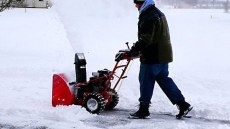TORONTO — Canadians and their co-workers might be depressed and not even realize it, according to a report on workplace health.
A survey of working-age adults in Ontario found that nearly 40 per cent were experiencing significant symptoms of depression but more than half of that group (52.8 per cent) didn't recognize a need to seek help.
The findings have been published in the Journal of Occupational and Environmental Medicine.
The lead author of the study is Dr. Carolyn Dewa, of the Centre for Addiction and Mental Health — which is affiliated with the University of Toronto.
Dewa says that there's a significant impact on health and work productivity as a result of unrecognized depression.
CAMH, known as Cam-H, based its report on telephone questionnaires and web-based surveys of Ontario residents who had been in the workforce during the preceding 12 months. Responses were from 2,219 people aged 18 to 65 years old.
"It's important for employers to know where to start when it comes to tackling productivity loss related to untreated depression," Dewa said in a news release.
"Our study suggests that helping workers understand when they should be seeking help would significantly boost work productivity."
The CAMH study estimates lost workplace productivity due to depression could be reduced by 33 per cent to nearly 50 per cent depending on how many barriers to treatment are removed.
In addition to lack of recognition of symptoms, major barriers could include attitudes, financial limitations and lack of accessible treatment.






